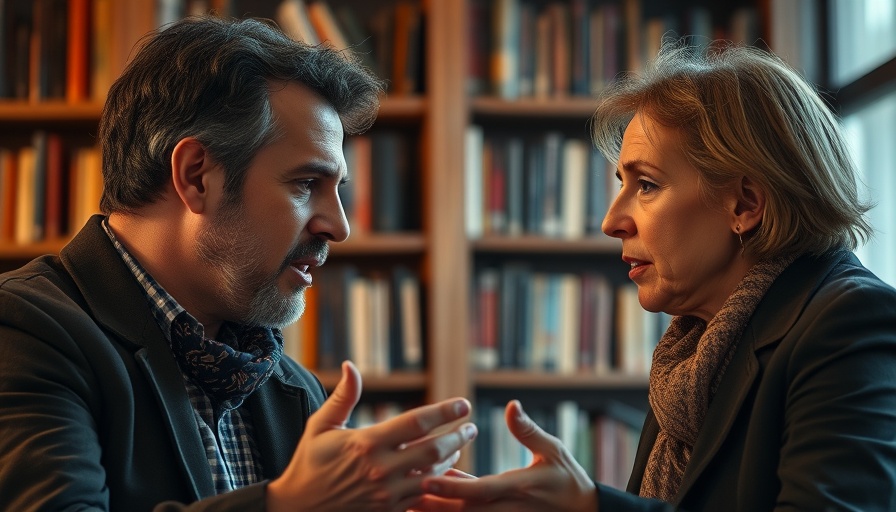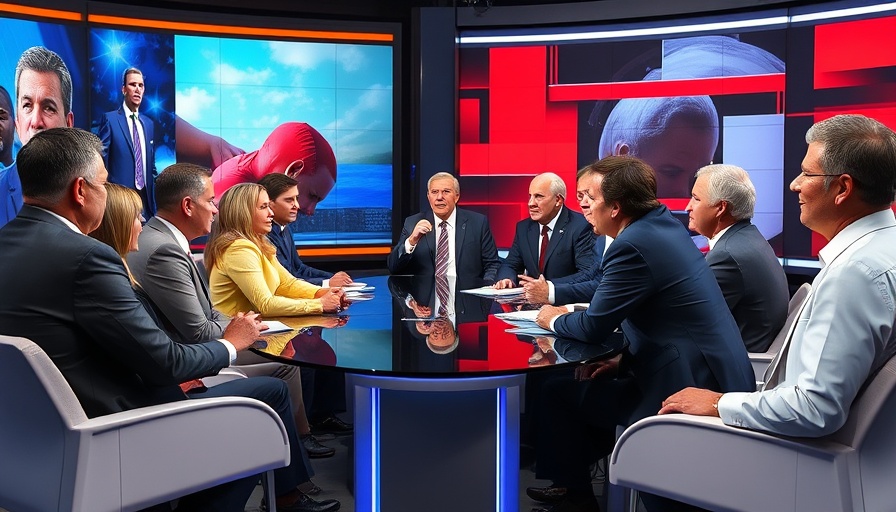
The Fall from Grace of Bill Burr: A Comedy Legend's Shift in Perspective
In a recent episode of The View, comedian Bill Burr found himself at the center of controversy, marking a notable shift from his previous status as an anti-woke warrior to a figure facing backlash for his viewpoints. Burr's comedic exploration of complex themes around God and morality led to mixed reactions, with critics questioning his authenticity in an increasingly polarized climate. His comments reflected a more subdued approach, where he expressed confusion about religious dogmas and their implications on society. This transformation invites a deeper examination of Burr's journey and the cultural landscape that shapes the narratives of public figures today.
In 'Bill Burr CRASHES AND BURNS on The View as Mark Cuban and Gavin Newsom's LIES get EXPOSED', the discussion dives into the performance of these public figures, exploring key insights that sparked deeper analysis on our end.
Mark Cuban's Messaging: A Libertarian Approach to Government
Mark Cuban, the billionaire entrepreneur, recently presented a bold vision for reducing the size of government. He argued for a streamlined approach that minimizes bureaucratic overhead, advocating for direct financial assistance to citizens instead of multiple social programs. Cuban's libertarian inclinations reveal a growing discontent with governmental inefficiency. His call for a retrenchment of governmental services resonated with many who feel the burden of an overly complex administrative landscape. It begs the question: could a paradigm shift towards minimalist governance actually provide relief and more support for the citizens who need it most?
Gavin Newsom's Contradictions: The Hypocrisy of Political Shifts
California Governor Gavin Newsom has also found himself in a spotlight for his contradictory stance on social issues. During a recent podcast, Newsom claimed that no one in his office uses the term 'Latinx,' further distancing himself from progressive language that he once championed. This distancing raises eyebrows among his former supporters, suggesting a strategic pivot that many see as a betrayal of the progressive values he espoused. Newsom’s apparent disavowal of 'woke' terminology underscores a larger theme in politics: the elasticity of principles for electoral advantage and the implications this has on public trust.
Exploring the Tangible Effects of Mainstream Media's Narrative
The recent discourse surrounding the media’s portrayal of political figures has ignited a wave of allegations regarding their intentions and biases, leading to what some are calling a case of Trump Derangement Syndrome (TDS). Figures like Joy Reid have come under fire for perpetuating divisive narratives that detract from constructive political dialogue. As the lines between news production and ideological agendas blur, the question arises: how does this affect public perception and engagement with essential issues?
A Legacy of Distrust: The Populist vs. Elite Tension
The ongoing struggle between populist movements and the established elite continues to evolve in America. As political commentators dissect the ideological underpinnings of movements like MAGA, the clash between populism and oligarchy becomes evident. Critics argue that populists, despite their rhetoric, often align with elite interests. This dichotomy emphasizes the need for an informed populace that can discern genuine populist intentions from those that are merely performative.
Conclusion: Understanding the Shifting Political Landscape
The intertwined narratives of public figures like Bill Burr, Mark Cuban, and Gavin Newsom reflect the dynamic landscape of American politics today. From comedic commentary to serious political discourse, the performances of these individuals reveal how personal beliefs and public personas can shift dramatically in response to societal pressures. As we dissect these developments, it becomes crucial to approach discussions with skepticism and a willingness to challenge narratives. In a time of heightened polarization, the need for engaging, intelligent dialogue is more critical than ever.
Now, step into the conversation and reflect critically: how have these shifts in public discourse affected your views and beliefs?
 Add Row
Add Row  Add
Add 




Write A Comment